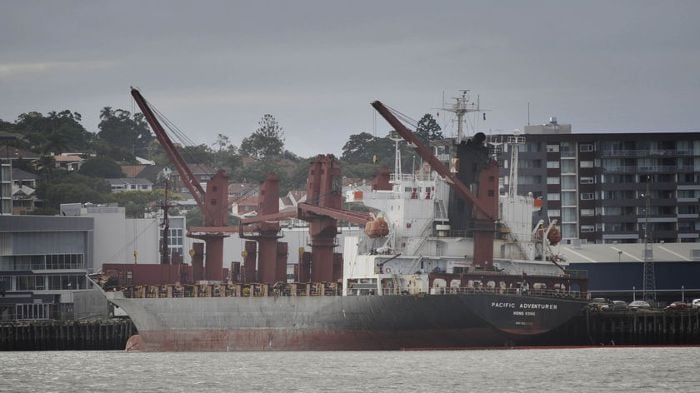A vocal critic says IMO is under more scrutiny than ever before to take further ambitious action to reduce greenhouse gas emissions
The International Maritime Organisation (IMO) maintains it is taking “bold steps” to reduce greenhouse gas emissions in the face of criticism that it is moving too slowly.
“The IMO was the first international organisation to adopt regulations improving the energy efficiency on ships and that was the first effort in any transport sector … and that began in 2011,” said IMO spokesman Frederick Kenney.
“There is a lot of work to be done in examining new methods of propulsion, alternative fuels, further energy efficiency measures to be taken for existing ships”.
The IMO is the United Nations agency that regulates international shipping and part of its remit is to reduce pollution like the carbon dioxide produced when tankers, bulk carriers and cargo ships burn heavy fuel oil.
It’s been estimated that international shipping is responsible for around three per cent of global carbon emissions, about the same amount as Germany.
Dr Peter Nuttall, advisor to the Micronesian Centre for Sustainable Transport, is a vocal critic of what he sees as a lack of meaningful action by the IMO on climate change
“The IMO is obviously saying it’s a huge job to do and we’re trying to do everything we can and look we’re making some progress,” he said.
“But the reality is the size of the challenge, the size of the emergency and the immediacy of change required outstrips any performance the IMO has yet demonstrated”.
The IMO points to a recently adopted energy efficiency rating system for ships as an example it is taking the issue seriously.
“Much like you would see an efficiency rating on a refrigerator and what that will do is rate each ship … and if ships are rated too low they have to develop an action plan to correct that,” Kenney said.
Dr Nuttal doesn’t think the new rating system will do much to cut emissions.
“We’re talking one to three per cent overall savings … we’re not keeping up with the rise in emissions let alone peaking and dropping off,” he said.
Kenney acknowledges there are calls from within the IMO for more ambitious reductions targets.
“The current target in the initial strategy is a 50 per cent reduction by 2030 and elimination by the end of the century however there have been some member states calling for more aggressive action,” Kenney said.
The Marshall Islands and the Solomon Islands have jointly submitted a proposal for a carbon tax to wean the industry off fossil fuels and fund research into other sources of power.
Dr Nuttal said the IMO is under more scrutiny than ever before.
“Everybody is watching this space … and you have industry going ‘there is a lot of money to be made in transition and we want to be involved in this transition’ … that’s major steps forward,” Dr Nuttall said.
This story was produced by Liam Fox, published at ABC on 12 October 2021, reposted via PACNEWS.




